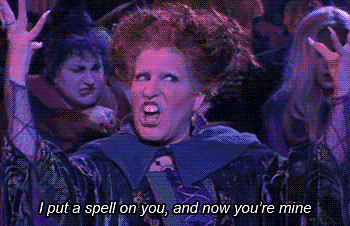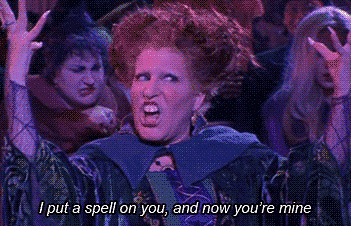Tags: Halloween, Holidays, Black History
Halloween as we know it involves haunted houses, costumes and trick-or-treating. Let’s be honest, it’s become just a tad commercial.
The early foundation of the holiday comes from the ancient Celtic festival of Samhain. They believed the souls of the dead would return to their homes and by wearing costumes it would ward off evil spirits. Many believers of the Christian faith believe this represents the devil’s holiday and for that reason have chosen not to celebrate.
Regardless of this, the holiday has a rich history within the African- American community, stretching back to the times during slavery. In its early years this holiday was a day for celebrating their ancestors. Enslaved people would swap out “haint tales”; a haint is of a type of ghost or evil spirit that originated in the beliefs and customs of the Gullah Geechee people.
Some stories would include the very real fear of their masters and how they believed they would never experience freedom even in their afterlife. Other stories included that their ancestors would come back to give advice, rectify wrongs, take revenge and protect fellow kin. Allowing for a sense of security after being separated and isolated during slavery haint tales would reaffirm deep ties, culture identities and connection with their ancestors. If the enslaved were allowed to mourn their loved ones, it wasn’t unusual for rituals and hoodoo to be done at burials protecting against those spirits that may not have the best intentions.
Fast-forwarding to the 20th century, which was known as a booming time for consumerism. Halloween began to build up in popularity by Irish-American immigrants in the late 19th century. By the 1920’s it was celebrated as a nationwide holiday, specifically amongst the black elite in New York. During this time anybody that was somebody in New York attended these lavish parties. Amongst many were The Savoy Nightclub which was founded and hosted the nostalgic themed “Bewitching Hallowe’en Party at The Savoy ” calling all that wanted to relive their childhood.
As the spooky holiday began picking up traction not everyone wanted to engage in it and would opt out of the common events of partying, pranks for trick-or-treating for Hallelujah parties. These parties typically took place at church the night of Halloween, allowing for religious black people to escape the shenanigans of demonic activities. Many of these traditions are still around to this day, some being rebranded to names like “harvest night” to appeal to the younger generations. Such activities include prayer and games that would ensure they were safe from the potential threats and violence.
There were black people who engaged in the celebration of the holiday, attending parties and harmless pranks. Meanwhile, others were still being subjected to offensive costumes, going as far as “black-face” done by politicians and Hollywood celebrities. Many conservative religious beliefs would lead to some black people choosing not to celebrate the holiday at all.
The night before October 31st came with a long list of names originally referred to as “Mischief night” had got its reputation of being a night full of vandalism and arson. Many neighborhoods and organizations would prepare for the night by offering activities that kids and teens couldn’t risk missing. Such activities would include candy, costume contests and parties, sound familiar? What used to be harmless pranks had turned violent especially in the city of Detroit.
By the 90’s the majority of black population would call it “Devil’s Night” in which the city would be covered by over 800 fires across the city. There was much more going on behind the scenes such as rising unemployment, vacant structures and police brutality that led people to take matters into their own hands. Following this outbreak of destruction of neighborhoods, local black activists would team up with the community leaders to form what was formerly known as the Anti-Arson Initiative Steering Committee. With all of the support of the community for one night, significantly decreased the number of fires in the following years.
Halloween is more than just one American-based holiday, African-American people hold a lot of traditions and history with the holiday as well. African- American people choosing to celebrate the holiday or not comes from a long history of reasoning.
So whether you want to embrace the mischievous night (aka trick or treating) or spend the night amongst other religious believers or even just stay in with a cozy blanket and watch a scary movie. The history of celebrating Halloween goes far deeper than what we know today.


